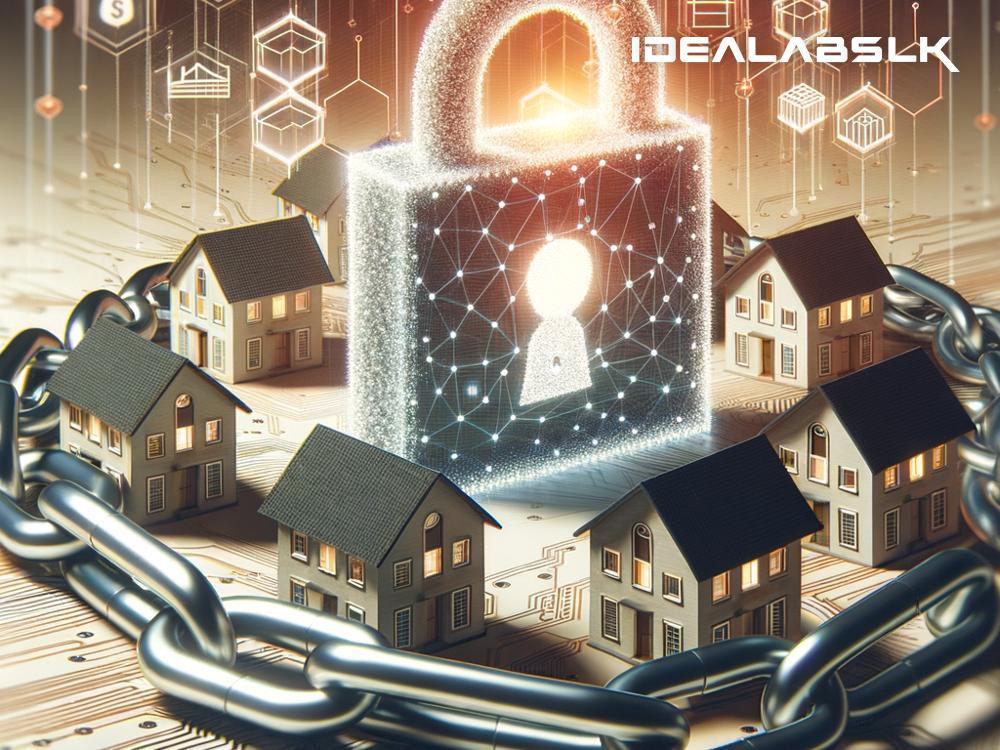Unraveling Blockchain for Real Estate Title Protection
In the realm of real estate, the protection and transfer of property titles have traditionally been a cumbersome, paperwork-ridden process. However, the integration of blockchain technology is set to revolutionize this domain by providing a secure, efficient, and less complicated method for handling real estate transactions. If you're intrigued by how this futuristic technology is making headwaves in the property sector, you've come to the right place. Let's break down the concept of using blockchain for real estate title protection in simple terms.
Understanding Blockchain in a Nutshell
Before we dive deep into its application in real estate, let's quickly unravel what blockchain is. Imagine a digital ledger that's accessible across various computers, where every transaction is recorded in a secure and tamper-proof manner. Each record or block is linked to the one before and after it, creating a chronological chain. This technology is most famously used in cryptocurrency systems like Bitcoin, but its potential spans far beyond, including securing real estate titles.
The Quagmire of Traditional Real Estate Title Transfer
Traditionally, transferring a real estate title is a process fraught with paperwork, third-party intermediaries like title companies, potential scams, and human errors. It involves verifying that the seller has the right to sell the property, ensuring the property is free from liens, and then updating the title with the new owner's information. It's time-consuming, expensive, and, frankly, outdated in our digital age.
Blockchain to the Rescue
Here's where blockchain steps in as a superhero. Picture this: a blockchain-based registry for real estate titles. Once a property is registered on this digital ledger, its history - including previous owners, liens, and transactions - is securely recorded and easily verifiable. Transferring a title would simply mean updating this ledger, a process that can be done quickly and securely without the need for piles of paperwork or numerous middlemen.
Advantages of Using Blockchain in Real Estate Title Protection
-
Security and Transparency: Blockchain technology is highly secure, due to its cryptographic foundation and decentralized nature. Every transaction is visible to all parties involved, reducing the chances of fraud and making it easier to spot discrepancies.
-
Efficiency and Speed: Transactions on the blockchain can be completed much faster than traditional methods, cutting down the time to transfer property titles from weeks to just days or even hours.
-
Reduced Costs: By eliminating the need for multiple intermediaries, the costs associated with real estate transactions can be significantly lowered.
-
Accuracy and Reliability: With blockchain, the information recorded is immutable, meaning it can't be altered or deleted. This ensures a reliable and accurate history of property titles.
Real-world Applications
A few forward-thinking countries and companies are already experimenting with blockchain for real estate transactions. For instance, Sweden has been testing a blockchain-based land registry system to enhance the efficiency and security of real estate transactions. Similarly, various startups are developing platforms that utilize blockchain to simplify the buying and selling of properties, aiming to make the process as seamless as ordering a product online.
Challenges and Considerations
While the benefits of using blockchain for real estate title protection are clear, there are several challenges to its widespread adoption. One major hurdle is the need for a comprehensive legal framework that recognizes and regulates these digital transactions. Additionally, there's the task of digitizing existing property records, a mammoth endeavor considering the vast number of properties and their historical data.
Furthermore, for blockchain to truly transform the real estate sector, it requires acceptance and trust from all stakeholders, including governments, real estate professionals, and the general public. Educating people about the benefits and workings of blockchain is crucial to overcoming skepticism and resistance to change.
The Future Is Near
The journey of integrating blockchain into real estate title protection is undoubtedly complex and fraught with challenges. However, the potential benefits it offers in terms of security, efficiency, and cost reduction make it a promising solution worth pursuing. As we move forward, continual technological advancements, coupled with supportive regulatory frameworks, could very well see blockchain becoming the norm in real estate transactions.
In summary, blockchain possesses the transformative power to streamline the real estate domain, providing a more secure, efficient, and transparent method for managing property titles. While we're still in the early stages of this revolution, the foundation is being laid for a future where buying a house could be as hassle-free as making an online purchase, thanks to blockchain technology.

